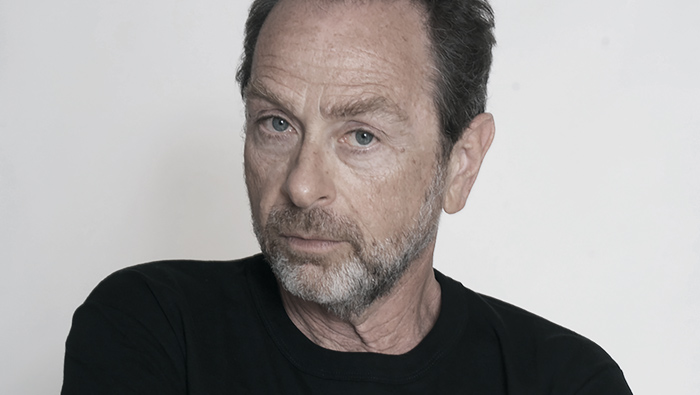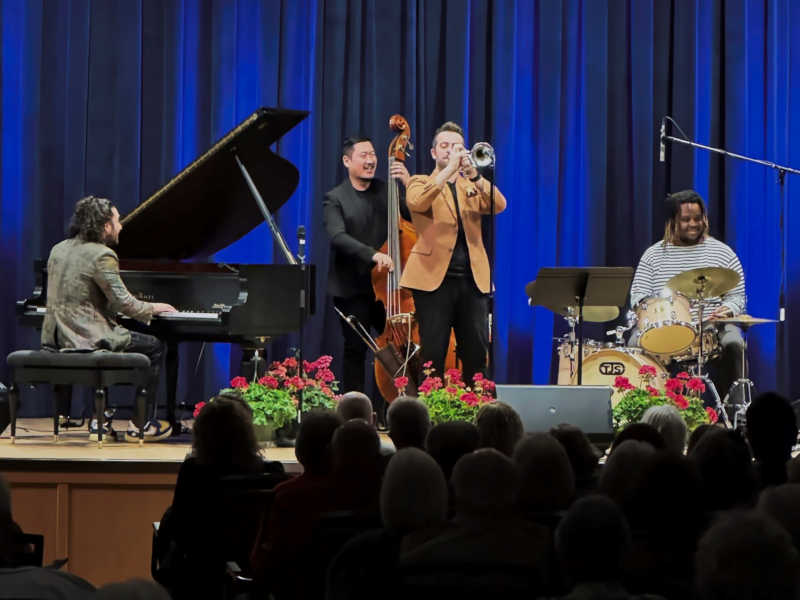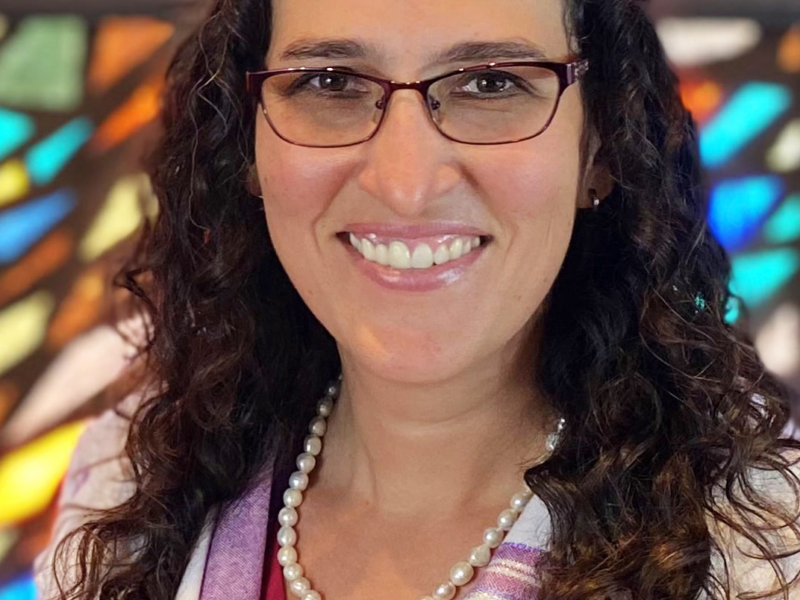Does the name Henry Gross ring a bell?
You might remember him as the youngest performer at Woodstock – he was 18 when he took the stage with the ’50s revival band Sha Na Na. Or you might recall his 1976 No.1 hit, “Shannon.” Or perhaps you saw him in the road company of the Broadway musical “Pump Boys and Dinettes” in the early ’80s.
If you’re wondering where Henry went, well, he’s been making music all along, writing and recording more than 15 albums, producing his own music, performing across the country and overseas. Although his penchant to take on new challenges hasn’t always landed him in the spotlight, Henry’s love for music and entertainment has taken him in some very interesting directions.
On Sept. 10 Henry will bring his one-man show “One Hit Wanderer” to the Tucson Jewish Community Center for a performance sponsored by Dr. Tedd Goldfinger and other members of the Jewish Federation of Southern Arizona’s Next Gen Men’s Group.
“It’s a theatrically written show. It’s not written like a cabaret. A lot of shows by rock ‘n’ roll musicians or songwriters are like a cabaret. They play a song and they say, ‘I wrote this because… and here’s the story of the song.’ My show’s not like that. The songs advance the story and it’s a lot of fun. It’s about my life. And it’s about my dad. And it’s about growing up in Brooklyn. It’s about my life and music,” says Henry, who is now 65.
While sharing his own remarkable story, Henry touches on universal themes that are totally relatable – even if you’ve never hung out with Jerry Garcia, played guitar with Jim Croce or sung a duet with Chaka Kahn.
Being Jewish shaped his outlook in many ways. “My grandfather lost family in the Holocaust. He was from Russia and his grandfather was the Gerrer Rebbe of Vilna. The only picture that he ever took, he took with my grandfather, and I have it in my bedroom. They were scholars. My mother’s father came in second in the Russian Gymnasium in Leningrad, but they wouldn’t let him go to med school because he was a Jew. He was drafted into the Czar’s army and lost his family when the Germans invaded Russia. His sister and family were burned alive in their house.”
Henry grew up in Brooklyn, as the only Jewish family on what he describes as the street with the largest Catholic diocese in the world. He attended Yeshiva Rambam in Brooklyn for eight years. “I was the guy who was not Orthodox at an Orthodox yeshiva. Nobody liked me there, at least the rabbis didn’t because I wasn’t kosher enough. And then when I went out in the street, everybody hated me because I was a Jew. So I had it from both directions. I think that alienation, maybe, made me my version of James Dean,” Henry says.
Rock ’n’ roll proved to be an ideal outlet for the frustration Henry felt at being an outsider in both worlds.
He started playing music when he was 13, influenced by his mother, who had sung briefly with the Metropolitan Opera Chorus and had a lifelong love of music. His first band, The Auroras, performed at the New Jersey pavilion of the 1964 New York World’s Fair. At age 14, he played in clubs all over New York and spent summers performing at Catskill Mountain resort hotels.
At 18, Henry helped create the first ’50s rock ’n’ roll revival group, Sha Na Na, He sang two songs on the group’s 1969 debut album, “Rock & Roll is Here to Stay.” Although the group’s popularity soared after their performance at the history-making Woodstock Festival, Henry left Sha Na Na shortly after to pursue a solo career that included the solid gold hit “Shannon” (which he wrote about the passing of Beach Boy Carl Wilson’s Irish Setter), 15 albums on major labels and over 7 million records sold.
Time for a change
Two decades later, Henry was ready for something new. “I had done it all and the business had changed. I did not become a brand name act that was going to sell out big theaters. So I thought, what can I do that I haven’t done that was different, so I auditioned for ‘Pump Boys and Dinettes.’” He traveled with the road company, which included Jonathan Edwards (known for his hit “Sunshine” and the late Nicolette Larson (“It’s Gonna Take a Lot of Love”). He learned a lot about theater, which was totally different from the rock ’n’ roll business. And then he decided to combine that theatrical experience and his songwriting chops to pen his own show.
“At the time I started writing the show, no rock ’n’ roll person had done one of these one-man kind of shows,” Henry says. He pitched the idea to one of the producers of “Pump Boys and Dinettes” who was interested and it evolved from there.
“It’s a pretty honest little show. I didn’t want to make this a comedy, like a stand-up routine. There’s funny stuff in it, plenty of it. But sometimes too many jokes bury the plot. This is not a big production, but it’s got a lot of heart. I know, I put my heart and soul in it,” says Henry. “And if my mother was still alive, she’d tell you it’s the best show in the world. And if my dad were alive, he’d say, ‘I told him to go to med school.’”
To watch a trailer and order tickets for “One Hit Wanderer” on Sept. 10, visit jfsa.org/jewish-federation-of-southern-arizona-calendar/henry-gross-concert. Tickets are $65 and include a hosted bar and bar snacks. Sponsorships are available and include a private reception. Doors open at 7 pm and the concert starts at 8 pm.





